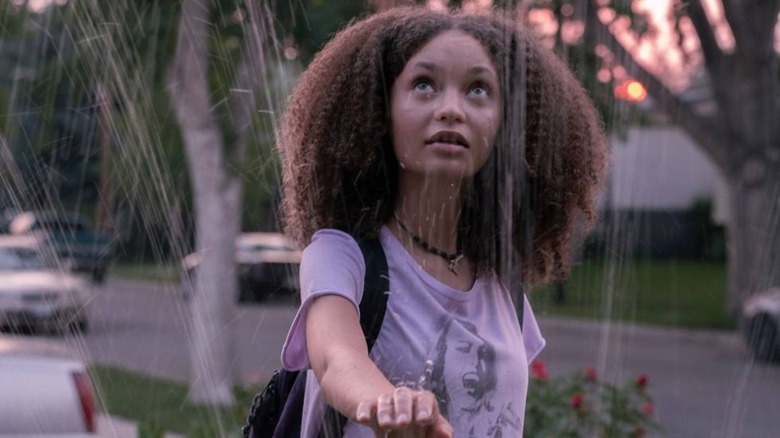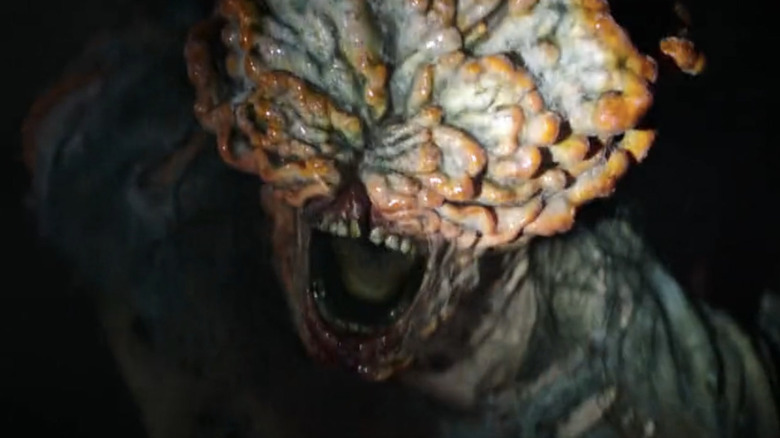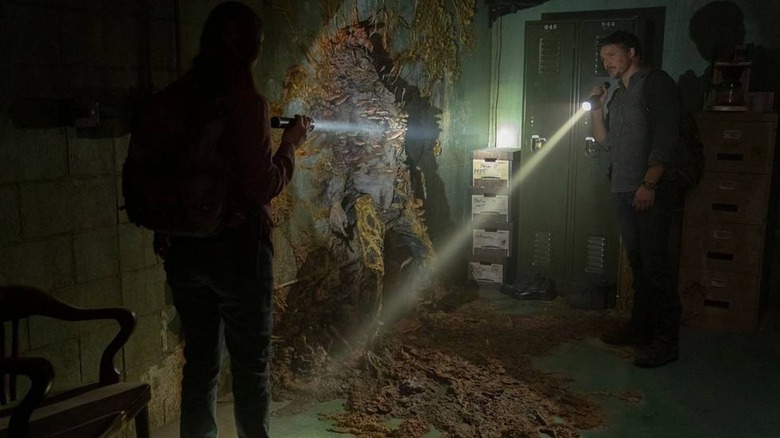The Opening Scene Of HBO's The Last Of Us Is The Perfect Exercise In Adapting A Video Game
Opening scenes already have a lot riding on them. Add to that a television show that is adapting one of the best video game stories ever told, and the stakes are even higher.
It's been a long and winding road to get to HBO's "The Last of Us," which has a massive budget to match its massive ambitions. Despite being produced by HBO, the home of prestige TV, being co-written by Naughty Dog's Neil Druckmann, the writer and co-director of the original game, the threat of the video game adaptation curse nonetheless looms over "The Last of Us."
However, the first episode of the series is a promising start, offering an outstanding example of how exactly to break free from the disappointments of other adaptations. Specifically, it's the series' opening scene that helps set it apart. Set decades before the main story of "The Last of Us" and featuring characters we're unlikely to see again, the opening scene is a perfect exercise in how to approach material from a video game in a way that's accessible to newcomers, and also offers something new for existing fans.
An ominous foreshadowing of what's to come
Rather than merely imitating the first "Last of Us" game and immediately opening the show with the story of Joel (Pedro Pascal) and his daughter Sarah (Nico Parker), the first scene of HBO's "The Last of Us" is separated from the main story by half a century. Taking place in 1968, the cold open sees two epidemiologists and a TV presenter discussing viruses and the potentially lethal damage they could wreak upon the human race in the event of a pandemic.
This opening feels like it belongs in Craig Mazin's previous television show, "Chernobyl," with its focus on the scientific aspect of the horrors viewers are about to witness. Moreover, the characters are discussing the havoc the infection would cause purely as a hypothetical, presenting the "what if?" scenario of the main story to an initially skeptical studio audience that mirrors the people watching at home.
Despite their blissful unawareness of what's to come, Dr. Newman's (John Hannah) morbid description of the societal repercussions of a Cordyceps fungus becoming capable of infecting humans is unsettling to those gathered in the studio, who are at first surprised by the idea of fungi as a threat, but are soon listening in rapt silence. It's an eerie cold open that works on two levels. For viewers familiar with the game and its story, it's a clear and ominous foreshadowing of what the Cordyceps will do and how it will impact the characters they care about. For viewers going in blind, it's an engaging and terrifying exposition of the show's premise. Moreover, the scene isn't in either of the video games. Instead, it's an entirely new and unexpected perspective that makes the world of "The Last of Us" feel that much more real.
Not a replica, but something new
Many video game adaptations have focused too much on making their stories and scenes play out the same way they did in the source material. It can be fun when movies like "Resident Evil: Welcome to Raccoon City" or "Tomb Raider" recreate sets and moments exactly as they are in the game. However, when it's executed like the "Uncharted" movie, which took an action set piece from the third game and replicated it precisely for the opening scene, it feels a little surface level. "Uncharted" lacked the sense of adventure and wonder of the games despite how hard it tries to recreate them.
Thankfully, HBO's "The Last of Us" does away with the preconceived notions of what an adaptation should have. The talk show segment that the series opens with is unique and original, while still keeping the spirit of the games. The rest of the first episode follows in the steps of that cold open, showing the fears of a 1968 world fully realized in 2003, the year Joel's story begins, and spending more time on Joel and Sarah's story as well. It will be interesting to see whether the rest of the season follows through by introducing other new perspectives and doing what any good adaptation should do: expanding on what came before and carving out its own legacy.
New episodes of "The Last of Us" release Sundays at 9pm E.T. on HBO and HBO Max.


